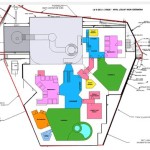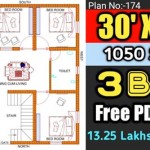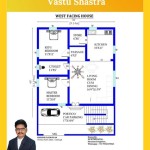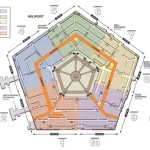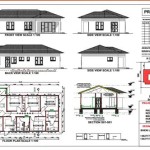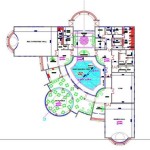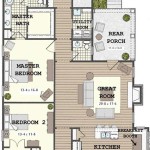Off-Grid Small Cabin Plans: A Guide to Sustainable Living
Embracing the off-grid lifestyle in a small cabin offers a unique opportunity to live more sustainably and reconnect with nature. Whether you're seeking a peaceful retreat or a permanent residence, planning and designing your off-grid cabin is a crucial step towards achieving your dream.Location and Site Evaluation:
The location of your cabin plays a significant role in determining its sustainability and accessibility. Consider factors like sunlight exposure for solar energy, water sources for drinking and irrigation, and proximity to essential amenities. Evaluate the site's topography, soil conditions, and potential natural hazards to ensure a safe and stable foundation.Cabin Design and Layout:
When designing your cabin, prioritize energy efficiency and self-sufficiency. Opt for compact and well-insulated structures to minimize energy consumption. Incorporate passive solar heating and cooling techniques like large windows facing south, overhangs for shade, and thermal mass materials. Plan a layout that optimizes space utilization and promotes energy efficiency.Energy Systems:
Self-sufficient energy generation is a cornerstone of off-grid living. Solar panels and wind turbines are popular choices for harnessing renewable energy. Size your systems based on your estimated energy needs, considering factors like the number of occupants, appliances, and lighting requirements. Ensure proper installation and maintenance to maximize energy output.Water Collection and Treatment:
Access to clean water is essential for any off-grid cabin. Install rainwater harvesting systems to collect and store water for various uses. Consider installing a water treatment system to purify water from nearby sources like streams or springs. Implement water conservation practices to minimize consumption and preserve your water supply.Waste Management:
Sustainable waste management is crucial for protecting the environment. Utilize composting toilets to recycle organic waste into nutrient-rich soil amendments. Utilize greywater systems to treat and reuse water from sinks, showers, and laundry for irrigation purposes. Explore options for recycling and proper disposal of non-biodegradable waste to minimize your environmental impact.Food Production:
Growing your own food can significantly reduce your reliance on external sources. Plan a garden or raised beds for growing vegetables, herbs, and fruits. Consider raising livestock, such as chickens, for eggs and meat. Implement sustainable farming practices like crop rotation, mulching, and companion planting to maximize yields and soil health.Environmental Considerations:
Minimize your ecological footprint by using eco-friendly building materials, such as recycled or reclaimed wood, and low-VOC paints. Select energy-efficient appliances and lighting fixtures to reduce energy consumption. Adhere to responsible land management practices to protect the surrounding ecosystem.Alternative Heating and Cooling:
In addition to passive solar design, explore alternative heating and cooling options. Wood stoves, pellet stoves, and propane heaters can provide warmth during cold months. Install ceiling fans and utilize cross-ventilation to keep your cabin cool in the summer.Safety and Security:
Living off-grid requires careful consideration of safety and security. Install a comprehensive security system, including motion sensors, alarms, and security cameras. Ensure proper insulation and fireproofing to minimize the risk of accidents. Prepare an emergency plan and maintain a well-stocked first aid kit for any unforeseen situations.Community and Sustainability:
Living off-grid doesn't mean isolating yourself from society. Engage with local communities to share resources, knowledge, and support. Participate in community events and initiatives to promote sustainable living and foster a sense of belonging. By carefully planning and designing your off-grid small cabin, you can create a comfortable, sustainable, and eco-conscious living space that aligns with your values and lifestyle aspirations. Embrace the challenges and rewards of off-grid living, and enjoy the freedom and self-sufficiency that comes with it.
The Off Grid Cabin Floor Plan Small Living In Style

8 Small Cabin Ideas For Off Grid Living Family Handyman

Cabin Plan Architektur

20 Fresh Off Grid House Plans Image Small Cabin Tiny Design

Off Grid Cabins Houseplans Blog Com

Off Grid Archives Small Wooden House Plans Micro Cabin Garden Shed Cottage Blueprints

How To Design A Floor Plan For Your Off Grid Cabin

How To Build A 400sqft Solar Powered Off Grid Cabin For 2k World

11 Free Small Cabin Plans With Printable Log Connection

192 Sq Ft Off Grid Tiny Cabin Design

